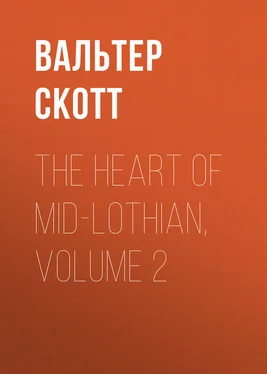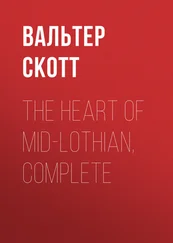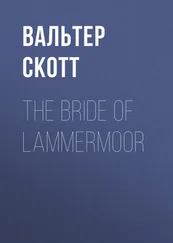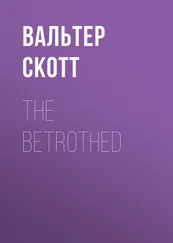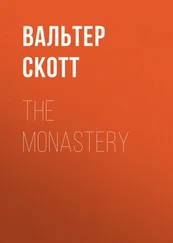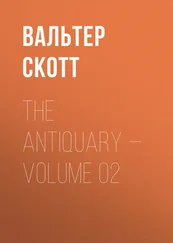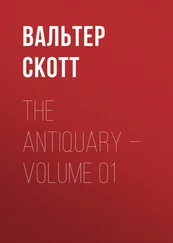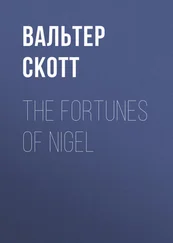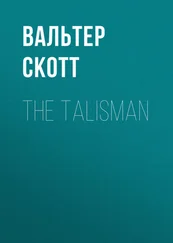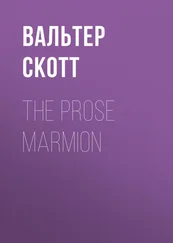Вальтер Скотт - The Heart of Mid-Lothian, Volume 2
Здесь есть возможность читать онлайн «Вальтер Скотт - The Heart of Mid-Lothian, Volume 2» — ознакомительный отрывок электронной книги совершенно бесплатно, а после прочтения отрывка купить полную версию. В некоторых случаях можно слушать аудио, скачать через торрент в формате fb2 и присутствует краткое содержание. Жанр: foreign_antique, foreign_prose, Альтернативная история, на английском языке. Описание произведения, (предисловие) а так же отзывы посетителей доступны на портале библиотеки ЛибКат.
- Название:The Heart of Mid-Lothian, Volume 2
- Автор:
- Жанр:
- Год:неизвестен
- ISBN:нет данных
- Рейтинг книги:3 / 5. Голосов: 1
-
Избранное:Добавить в избранное
- Отзывы:
-
Ваша оценка:
- 60
- 1
- 2
- 3
- 4
- 5
The Heart of Mid-Lothian, Volume 2: краткое содержание, описание и аннотация
Предлагаем к чтению аннотацию, описание, краткое содержание или предисловие (зависит от того, что написал сам автор книги «The Heart of Mid-Lothian, Volume 2»). Если вы не нашли необходимую информацию о книге — напишите в комментариях, мы постараемся отыскать её.
The Heart of Mid-Lothian, Volume 2 — читать онлайн ознакомительный отрывок
Ниже представлен текст книги, разбитый по страницам. Система сохранения места последней прочитанной страницы, позволяет с удобством читать онлайн бесплатно книгу «The Heart of Mid-Lothian, Volume 2», без необходимости каждый раз заново искать на чём Вы остановились. Поставьте закладку, и сможете в любой момент перейти на страницу, на которой закончили чтение.
Интервал:
Закладка:
At York our pilgrim stopped for the best part of a day, partly to recruit her strength, – partly because she had the good luck to obtain a lodging in an inn kept by a countrywoman, – partly to indite two letters to her father and Reuben Butler; an operation of some little difficulty, her habits being by no means those of literary composition. That to her father was in the following words. —
"Dearest Father, – I make my present pilgrimage more heavy and burdensome, through the sad occasion to reflect that it is without your knowledge, which, God knows, was far contrary to my heart; for Scripture says, that 'the vow of the daughter should not be binding without the consent of the father,' wherein it may be I have been guilty to tak this wearie journey without your consent. Nevertheless, it was borne in upon my mind that I should be an instrument to help my poor sister in this extremity of needcessity, otherwise I wad not, for wealth or for world's gear, or for the haill lands of Da'keith and Lugton, have done the like o' this, without your free will and knowledge. Oh, dear father, as ye wad desire a blessing on my journey, and upon your household, speak a word or write a line of comfort to yon poor prisoner. If she has sinned, she has sorrowed and suffered, and ye ken better than me, that we maun forgie others, as we pray to be forgien. Dear father, forgive my saying this muckle, for it doth not become a young head to instruct grey hairs; but I am sae far frae ye, that my heart yearns to ye a', and fain wad I hear that ye had forgien her trespass, and sae I nae doubt say mair than may become me.
The folk here are civil, and, like the barbarians unto the holy apostle, hae shown me much kindness; and there are a sort of chosen people in the land, for they hae some kirks without organs that are like ours, and are called meeting-houses, where the minister preaches without a gown. But most of the country are prelatists, whilk is awfu' to think; and I saw twa men that were ministers following hunds, as bauld as Roslin or Driden, the young Laird of Loup-the-dike, or ony wild gallant in Lothian.
A sorrowfa' sight to behold! Oh, dear father, may a blessing be with your down-lying and up-rising, and remember in your prayers your affectionate daughter to command,
"Jean Deans."A postscript bore, "I learned from a decent woman, a grazier's widow, that they hae a cure for the muir-ill in Cumberland, whilk is ane pint, as they ca't, of yill, whilk is a dribble in comparison of our gawsie Scots pint, and hardly a mutchkin, boiled wi' sope and hartshorn draps, and toomed doun the creature's throat wi' ane whorn. Ye might try it on the bauson-faced year-auld quey; an it does nae gude, it can do nae ill. – She was a kind woman, and seemed skeely about horned beasts. When I reach Lunnon, I intend to gang to our cousin Mrs. Glass, the tobacconist, at the sign o' the Thistle, wha is so ceevil as to send you down your spleuchan-fu' anes a year; and as she must be well kend in Lunnon, I doubt not easily to find out where she lives."
Being seduced into betraying our heroine's confidence thus far, we will stretch our communication a step beyond, and impart to the reader her letter to her lover.
"Mr. Reuben Butler, – Hoping this will find you better, this comes to say, that I have reached this great town safe, and am not wearied with walking, but the better for it. And I have seen many things which I trust to tell you one day, also the muckle kirk of this place; and all around the city are mills, whilk havena muckle wheels nor mill-dams, but gang by the wind – strange to behold. Ane miller asked me to gang in and see it work, but I wad not, for I am not come to the south to make acquaintance with strangers. I keep the straight road, and just beck if onybody speaks to me ceevilly, and answers naebody with the tong but women of my ain sect. I wish, Mr. Butler, I kend onything that wad mak ye weel, for they hae mair medicines in this town of York than wad cure a' Scotland, and surely some of them wad be gude for your complaints. If ye had a kindly motherly body to nurse ye, and no to let ye waste yoursell wi' reading – whilk ye read mair than eneugh wi' the bairns in the schule – and to gie ye warm milk in the morning, I wad be mair easy for ye. Dear Mr. Butler, keep a good heart, for we are in the hands of Ane that kens better what is gude for us than we ken what is for oursells. I hae nae doubt to do that for which I am come – I canna doubt it – I winna think to doubt it – because, if I haena full assurance, how shall I bear myself with earnest entreaties in the great folk's presence? But to ken that ane's purpose is right, and to make their heart strong, is the way to get through the warst day's darg. The bairns' rime says, the warst blast of the borrowing days 9 9 The last three days of March, old style, are called the Borrowing Days; for, as they are remarked to be unusually stormy, it is feigned that March had borrowed them from April, to extend the sphere of his rougher sway. The rhyme on the subject is quoted in the glossary to Leyden's edition of the "Complaynt of Scotland" — [March said to Aperill, I see three hogs upon a hill, A young sheep before it has lost its first fleece. But when the borrowed days were gane The three silly hogs came hirplin hame.]
couldna kill the three silly poor hog-lams.
"And if it be God's pleasure, we that are sindered in sorrow may meet again in joy, even on this hither side of Jordan. I dinna bid ye mind what I said at our partin' anent my poor father, and that misfortunate lassie, for I ken you will do sae for the sake of Christian charity, whilk is mair than the entreaties of her that is your servant to command,
"Jeanie Deans."This letter also had a postscript. "Dear Reuben, If ye think that it wad hae been right for me to have said mair and kinder things to ye, just think that I hae written sae, since I am sure that I wish a' that is kind and right to ye and by ye. Ye will think I am turned waster, for I wear clean hose and shoon every day; but it's the fashion here for decent bodies and ilka land has it's ain landlaw. Ower and aboon a', if laughing days were e'er to come back again till us, ye wad laugh weel to see my round face at the far end of a strae bon-grace, that looks as muckle and round as the middell aisle in Libberton Kirk. But it sheds the sun weel aff, and keeps uncivil folk frae staring as if ane were a worrycow. I sall tell ye by writ how I come on wi' the Duke of Argyle, when I won up to Lunnon. Direct a line, to say how ye are, to me, to the charge of Mrs. Margaret Glass, tobacconist, at the sign of the Thistle, Lunnon, whilk, if it assures me of your health, will make my mind sae muckle easier. Excuse bad spelling and writing, as I have ane ill pen."
The orthography of these epistles may seem to the southron to require a better apology than the letter expresses, though a bad pen was the excuse of a certain Galwegian laird for bad spelling; but, on behalf of the heroine, I would have them to know, that, thanks to the care of Butler, Jeanie Deans wrote and spelled fifty times better than half the women of rank in Scotland at that period, whose strange orthography and singular diction form the strongest contrast to the good sense which their correspondence usually intimates.
For the rest, in the tenor of these epistles, Jeanie expressed, perhaps, more hopes, a firmer courage, and better spirits, than she actually felt. But this was with the amiable idea of relieving her father and lover from apprehensions on her account, which she was sensible must greatly add to their other troubles. "If they think me weel, and like to do weel," said the poor pilgrim to herself, "my father will be kinder to Effie, and Butler will be kinder to himself. For I ken weel that they will think mair o' me than I do o' mysell."
Accordingly, she sealed her letters carefully, and put them into the post-office with her own hand, after many inquiries concerning the time in which they were likely to reach Edinburgh. When this duty was performed, she readily accepted her landlady's pressing invitation to dine with her, and remain till the next morning. The hostess, as we have said, was her countrywoman, and the eagerness with which Scottish people meet, communicate, and, to the extent of their power, assist each other, although it is often objected to us as a prejudice and narrowness of sentiment, seems, on the contrary, to arise from a most justifiable and honourable feeling of patriotism, combined with a conviction, which, if undeserved, would long since have been confuted by experience, that the habits and principles of the nation are a sort of guarantee for the character of the individual. At any rate, if the extensive influence of this national partiality be considered as an additional tie, binding man to man, and calling forth the good offices of such as can render them to the countryman who happens to need them, we think it must be found to exceed, as an active and efficient motive, to generosity, that more impartial and wider principle of general benevolence, which we have sometimes seen pleaded as an excuse for assisting no individual whatever.
Читать дальшеИнтервал:
Закладка:
Похожие книги на «The Heart of Mid-Lothian, Volume 2»
Представляем Вашему вниманию похожие книги на «The Heart of Mid-Lothian, Volume 2» списком для выбора. Мы отобрали схожую по названию и смыслу литературу в надежде предоставить читателям больше вариантов отыскать новые, интересные, ещё непрочитанные произведения.
Обсуждение, отзывы о книге «The Heart of Mid-Lothian, Volume 2» и просто собственные мнения читателей. Оставьте ваши комментарии, напишите, что Вы думаете о произведении, его смысле или главных героях. Укажите что конкретно понравилось, а что нет, и почему Вы так считаете.
